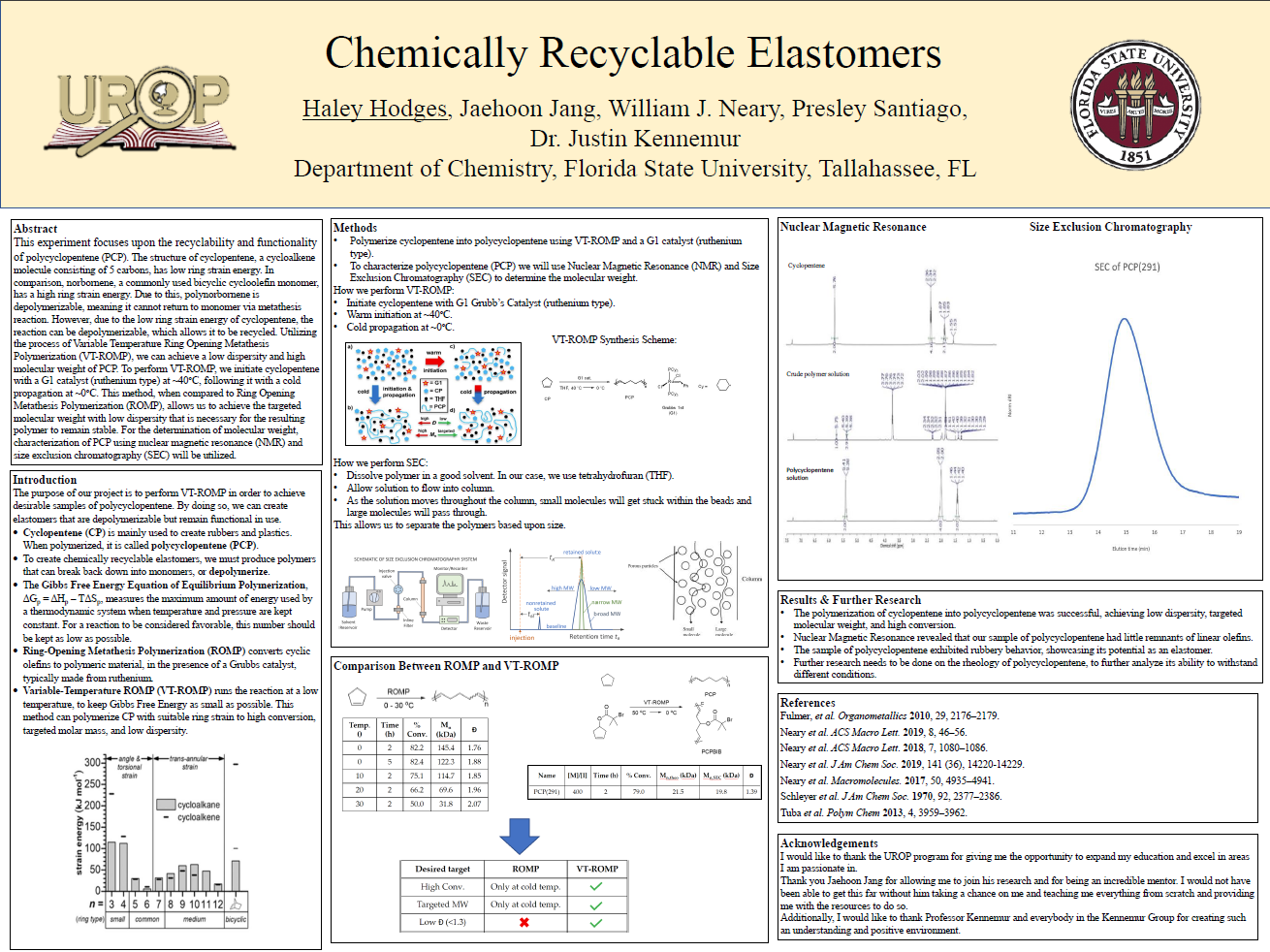Research Symposium
23rd annual Undergraduate Research Symposium, April 6, 2023
Haley Hodges Poster Session 1: 11:00 am - 12:00 pm/ Poster #166

BIO
Haley Hodges is a freshman attending Florida State University, majoring in biochemistry. Raised in Tampa, Florida, she has had first-hand experience observing the effects of pollution across the Tampa Bay area. Due to this, Haley has a passion for creating awareness and driving change towards sustainability efforts. Currently, she is assisting in a research lab that has a focus on developing chemically recyclable elastomers that could replace the elastomers that litter our planet. In the future, Haley hopes to continue research focusing on sustainability efforts, utilizing her research and lab experience.
Chemically Recyclable Elastomers
Authors: Haley Hodges, Dr. Justin KennemurStudent Major: Biochemistry
Mentor: Dr. Justin Kennemur
Mentor's Department: Chemistry Mentor's College: Chemistry Co-Presenters:
Abstract
This experiment focuses upon the recyclability and functionality of polycyclopentene (PCP). The structure of cyclopentene, a cycloalkene molecule consisting of 5 carbons, has low ring strain energy. In comparison, norbornene, a commonly used bicyclic cycloolefin monomer, has a high ring strain energy. Due to this, polynorbornene is depolymerizable, meaning it cannot return to monomer via metathesis reaction. However, due to the low ring strain energy of cyclopentene, the reaction can be depolymerizable, which allows it to be recycled. Utilizing the process of Variable Temperature Ring Opening Metathesis Polymerization (VT-ROMP), we can achieve a low dispersity and high molecular weight of PCP. To perform VT-ROMP, we initiate cyclopentene with a G1 catalyst (ruthenium type) at ~40°C, following it with a cold propagation at ~0°C. This method, when compared to Ring Opening Metathesis Polymerization (ROMP), allows us to achieve the targeted molecular weight with low dispersity that is necessary for the resulting polymer to remain stable. For the determination of molecular weight, characterization of PCP using nuclear magnetic resonance (NMR) and size exclusion chromatography (SEC) will be utilized.
Keywords: polymers, chemistry, recyclability, sustainability

